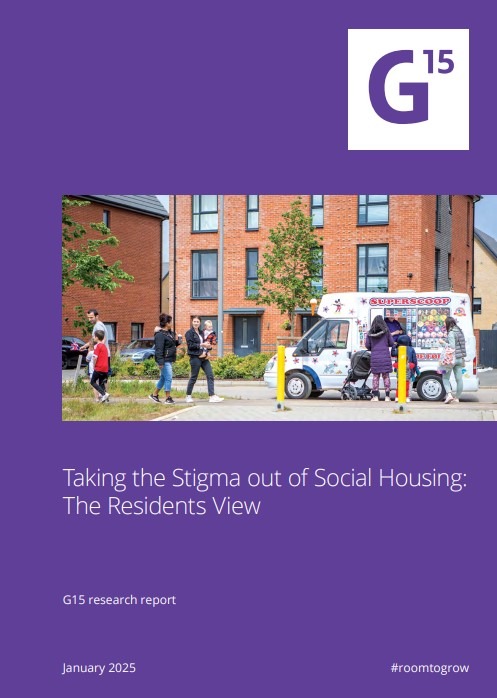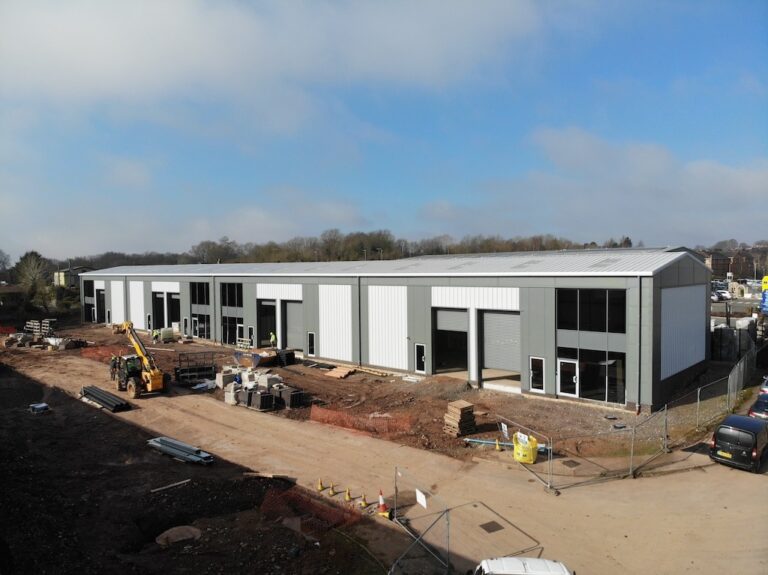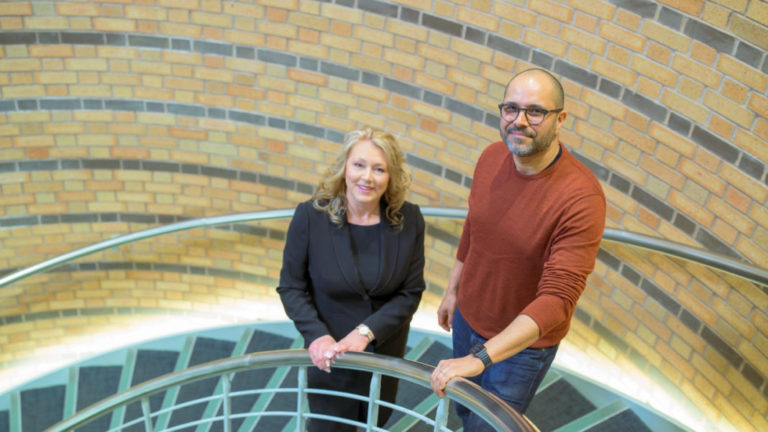Stigma in Social Housing: London Residents Face Discrimination, Urges Reform

Image provided courtesy of the G15
Almost half of social housing residents in London report experiencing prejudice & discrimination due to where they live according to a new report
Nearly half of London’s social housing residents surveyed (45%) have experienced prejudice or discrimination because of their housing status, while over a third (35%) described feelings of embarrassment, according to a new report revealing the shocking extent of stigma faced by individuals and communities who form an essential part of the capital’s social and economic fabric.
The findings of the “Taking the Stigma out of Social Housing: The Residents View” report are based on a first-of-its-kind survey of 3,000 social housing residents in London, conducted by the G15, representing London’s largest not-for-profit housing associations, who between them provide affordable and social homes to 1 in 10 Londoners—as well as to communities across the UK. The report is sponsored by the G15 Residents’ Group – a forum of involved residents, set up to deliver resident-led change within the housing sector, ahead of the formal launch at an event in Parliament on 14th January 2025.
Overall there are an estimated 655,000 social rent homes in London.
Personal and professional stigma
Residents who reported experiencing stigma highlighted several key areas where it has impacted their lives. The most common source of stigma was interactions with landlords, cited by 43% of respondents. Other significant areas included interactions with customer service agents, such as banks and mobile phone companies (24%), and dealings with official authorities, such as the police (24%). Stigma also extended into professional and personal spheres, with 18% reporting a negative impact on their employment or career opportunities and 14% feeling it affected their dating lives. These findings underline how deeply stigma infiltrates everyday interactions, further marginalising social housing residents in both public and private aspects of their lives.
Daisy Armstrong, Chair for the G15 Residents’ Group said, “Social housing is a lifeline for so many people, but stigma continues to hold us back. It’s time we focused on the reality: we are proud of our homes, proud of our communities, and proud of the contributions we make to society.”
Unpacking the causes of stigma
In the survey, residents highlighted media portrayals of social housing and residents as the most significant driver of negative perceptions. Sensationalist reporting and programmes such as Benefits Street were repeatedly identified as having shaped misleading stereotypes, unfairly portraying social housing residents as criminals, unemployed, or reliant on welfare. One resident explained, “The media has a huge role in shaping people’s views. Programmes like ‘Benefits Street’ made us feel judged and embarrassed. It’s not the reality of who we are.”
Language used by politicians when talking about social housing and residents, and government housing policy, ranked second and third, respectively in terms of causes. Social media also emerged as a key driver, ranking fourth, with its discussions and portrayals seen as perpetuating negative stereotypes.
While the Grenfell tragedy in 2017 sparked a national conversation about the treatment and perception of social housing residents, meaningful action to address stigma has been limited, leaving many feeling overlooked and undervalued by policymakers.
Fiona Fletcher-Smith, Chair of the G15 and CEO of L&Q Housing, urged policymakers, media, and society as a whole to take action. She said: “This report should be a wake-up call to society and policymakers. Social housing residents are the beating heart of London—not only as essential workers but as neighbours, carers, young professionals, families, and active members of their communities.
“We must challenge negative stereotypes, confront damaging rhetoric, and ensure that our residents are treated with respect and dignity.”
Proud to be social
Despite these challenges, the report offers a more positive reflection of social housing residents’ realities and contributions. Far from the damaging stereotypes, the findings make clear that social housing provides a vital foundation for individuals and families, offering stability and opportunities that many would not otherwise have. The most significant benefit highlighted by 67% of residents was the money saved by not having to rent at private market rates, enabling them to allocate resources to other essential areas of their lives. Additionally, 45% reported that social housing positively impacted their family life, while 42% noted improvements in their health and mental health.
One resident reflected, “I am so thankful that I’ve been able to raise four children alone, which I could not have done without social housing. It allowed me to keep my family together and to provide them with the security they needed.”
Additional research from G15 member Peabody reveals that a third of London’s police officers, ambulance staff, and care workers live in social housing, alongside a significant number of security staff, postal workers, cleaners, and kitchen assistants. Social housing residents are integral to the capital’s workforce, contributing £6.9 billion per year to the economy while underpinning essential services and industries that benefit everyone.
While stigma persists, the report calls for urgent action to address harmful narratives and perceptions. By challenging entrenched stereotypes, fostering positive representations, and creating policies that reflect the realities of social housing, society can begin to recognise and celebrate the value that social housing brings—not only to individual residents but to the wider social fabric of London and beyond.
Fiona Fletcher-Smith added: “From housing key workers, young professionals, families and communities to the long term economic value provided by our homes, social homes and their residents are a vital part of what makes the capital tick.”
“After over a decade of chaotic policy and scapegoating of housing associations and their residents, it’s imperative the Government continues to help us invest in homes and communities our residents can be proud of while building new homes to meet London’s housing affordability crisis.”










